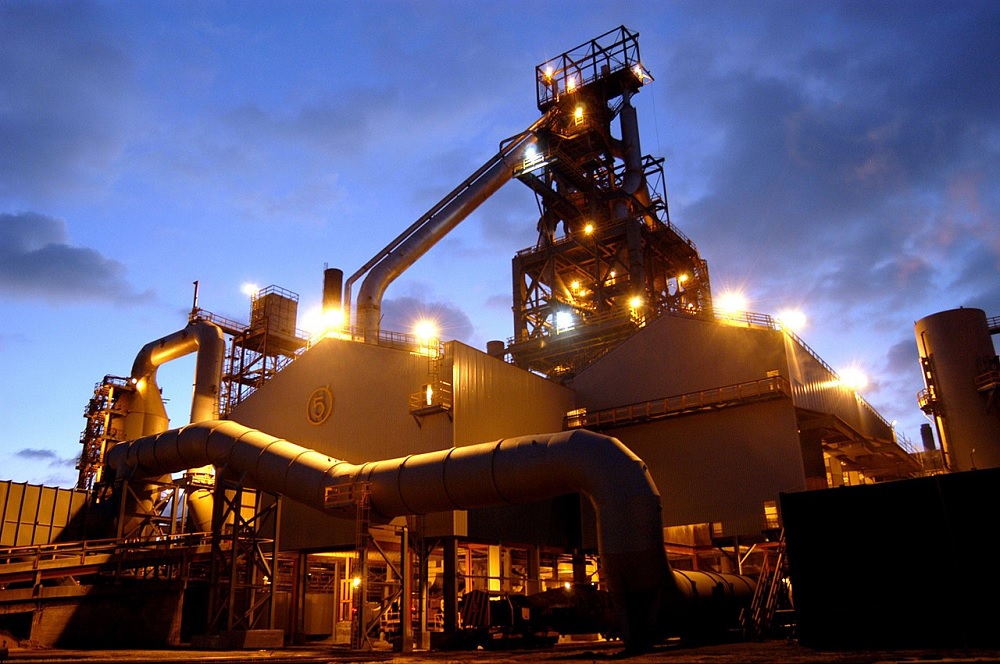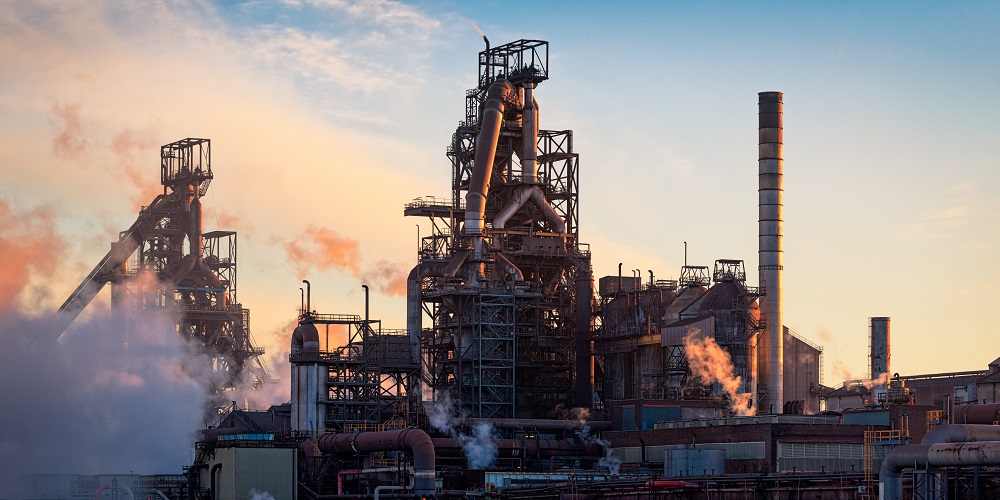Port Talbot Steelworks: Is it time for public ownership?

Meirion Thomas
The fate of the Port Talbot steelworks hangs in the balance.
Once regarded as a cornerstone and a beacon of the UK’s industrial prowess, Tata Steel’s ownership now raises serious concerns about the future of the workforce, the environment, and the UK economy.
The recent developments paint a grim picture of muddled thinking: is it really feasible that a UK government investment of £500 million could spell the loss of two-thirds of the workforce, relinquishment of the UK’s sovereign capability in steel production, and a mere transfer of carbon emissions overseas rather than the promised overall reduction.
Tata’s plan, initially lauded as a step towards sustainability with the promise of an electric arc furnace, has unravelled to reveal its true intentions. It’s less about environmental stewardship and more about profit margins.
The proposed timeline speaks volumes—while blast furnaces face imminent closure, the replacement electric arc furnace won’t be operational until the end of the decade. In the interim, Tata plans to fill the gap in steel production by importing steel, which effectively outsources, rather than reduces CO2 emissions while sacrificing local jobs and the UK’s industrial autonomy.
The proposed electric arc furnace falls short in several critical aspects. It lacks the capacity to produce primary steel, relies heavily on imported pig iron allow the production of quality steel, and cannot meet the diverse needs of the UK’s steel consumers. Consequently, the UK stands to lose its sovereign capability, with far-reaching strategic and economic ramifications.

The Syndex plan—an alternative vision endorsed by trade unions—proposed a more sustainable transition. It advocates for a gradual shift, maintaining blast furnace operations until 2032, alongside investments in electric arc furnaces and Direct Reduction Iron (DRI) plants. This approach not only safeguards jobs and sovereign capability but also paves the way for emissions reduction, akin to successful models already practiced in Tata’s Ijmuiden plant in the Netherlands.
Despite the merits of the Syndex plan, Tata remains obstinate, rejecting it on grounds of cost and feasibility. Efforts by political figures to negotiate a revised strategy have hit a deadlock, with Tata unwilling to postpone decisions until after the UK general election. Faced with this impasse, Port Talbot’s trade unions are considering taking industrial action—a last resort in a battle for the livelihoods of thousands and to protect the UK steel industry.
In light of these developments, public ownership emerges as a compelling solution. Surely, it’s untenable for the UK Exchequer to pour £500 million into an investment that jeopardises thousands of jobs and increases import dependency. Public ownership would not only buy time to explore alternative strategies but also has recent past precedents, as seen in the case of Scunthorpe’s steelworks.
Under public ownership, the government can protect strategic assets, prevent job losses, and steer the plant and the UK industry towards a more sustainable, green future. While there will be costs involved, they pale in comparison to the long-term benefits of preserving industrial autonomy and mitigating economic fallout. Furthermore, a change in government could unlock additional funds, bolstering the steel industry’s resilience.
The saga of Port Talbot steelworks is a microcosm of broader challenges facing the UK’s industrial landscape. As the stakes escalate, the call for public intervention will surely grow louder — a clarion call to safeguard our industries, our communities, and our future.
Meirion Thomas is Wales Director, Industrial Communities Alliance
The Industrial Communities Alliance is the all-party association of local authorities in the industrial areas of England, Scotland and Wales. The Alliance was formed in 2007 by the merger of the longer-standing associations covering coal and steel areas, expanding to include other parts of industrial Britain. Alliance local authorities cover many of the most disadvantaged local economies and communities in the country.
Support our Nation today
For the price of a cup of coffee a month you can help us create an independent, not-for-profit, national news service for the people of Wales, by the people of Wales.






An entirely predictable outcome of the Libertarian politics the UK has pursued since 1979. Patrick Minford is the headline name for this economic approach but it has been championed by every UK Govt since. Deindustrialisation has been the policy alongside agglomeration of the Banking and Services sectors causing the economic polarisation of Britain around the London core and roUK periphery. Why? Because that is the vehicle of Britain’s capitalist class to pursue further enrichment. There is no sentiment there. They don’t care about Port Talbot. Remaining a powerless component of the UK is absolutely antithetical to the economic wellbeing of… Read more »
Analysis perfectly correct: solution flawed. How on earth would a ‘democratic Welsh state’ conjure up the means to take the plant into public ownership, and then run it at a loss for several years?
A ton of presumption in your question. Let me throw a question your way. How do we ensure the steel industry in Wales survives in the “United Kingdom”?
YES!
If we get involved in a prolonged war in Europe, what are we going to do without steel making if we are unable to secure sea routes into the UK ? We might as well surrender and start learning to speak Russian! These Tory politicians can’t seem to get into their thick skulls, that you can’t just snap your fingers and get these industries back in an emergency. The pandemic was a complete shambles because they privatised the PPE storage. Same old story, and they never, ever learn! Steel making is a strategically important industry, and it should be nationalised.
But the sad part for the working people is, the Torys know exactly what they are doing, that is, filling their bank accounts. When they privatised water electricity gas the GPO, all were undervalued, and a killing was made on the stock markets, Brexit is another money maker for these people ie Rees- Mogg made millions and moved his offices to Dublin to continue trading in the EU, and as Farage said, when asked ” what if Brexit fails” his reply ” I will move abroad”, because he has the money to do it. It is, and has always been,… Read more »
Brava, Meirion! The ICA is absolutely right.
I want Port Talbot to produce rails for Cymru’s light rail (specifically low-weight, low-energy trams), the efficient option for our future.
But do we have one?
If the foreign owners pull out of the UK, I expect the main infrastructure to be removed or decommissioned to prevent a viable option to take it over. Ruling must be in place to prevent this should the option ever arise. It has been done before in the UK when large scale manufacturing has been sold off for building sites.
Take ownership of Port Talbot and offset the cost against all the aid and other handouts made to the Indian government. TATA and Mori would squeal like hell but so what ? It’s not as if the poor ordinary old Indian has benefitted. Most of the loot has gone into the coffers of a select few. Rishi knows.
Both governments (UK & Welsh) are hell-bent on emissions reductions regardless of the human cost. Hence neither is likely to stand in the way of closing the blast furnaces at Port Talbot, just as they didn’t stand in the way of the closure of Milford Haven Refinery, Baglan Bay chemicals, Aberthaw power station etc. It is convenient for them when emissions ‘disappear’. The only low-emission / high-employment / primary steel production option is the hydrogen route to green steel. The problem with this is it requires vast sums of cash and vast amounts of green power. The Boden project in… Read more »
Indy. Or even Dominion Status, which is 90% Indy. Pity that Labour and Plaid – who have each had 100 years – chose not to bother with Indy.